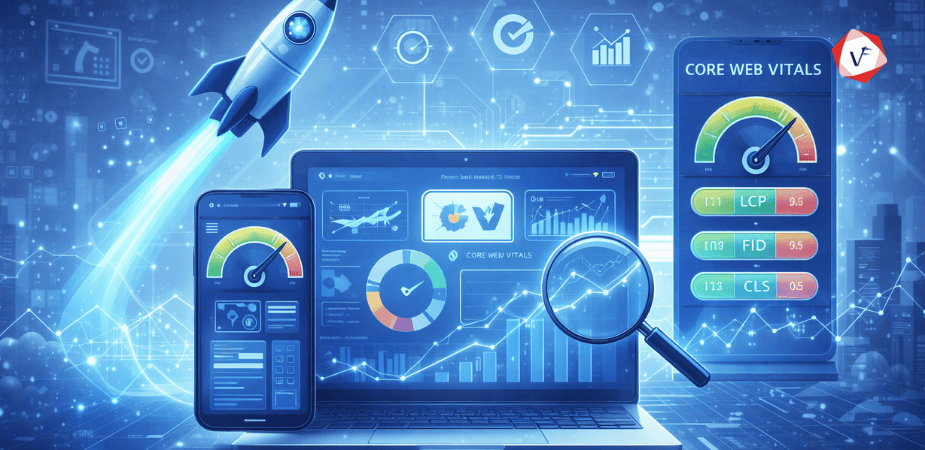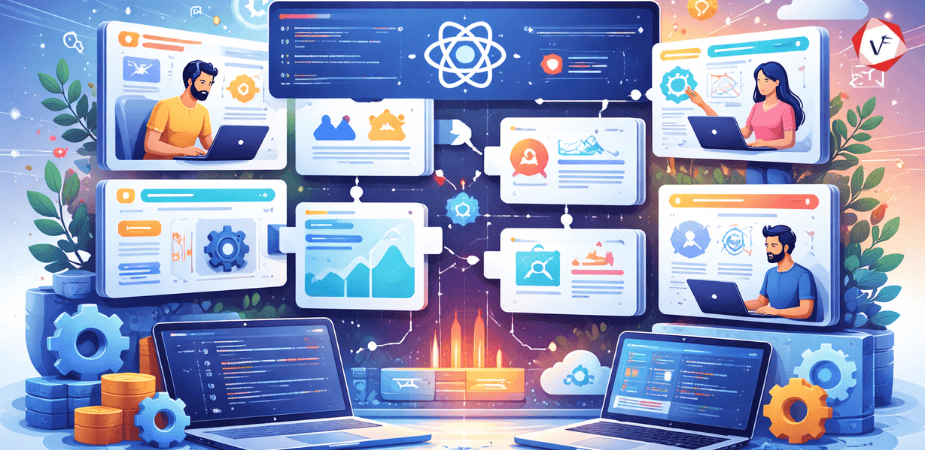- July 07, 2025 5:17 pm
- by Safvana
- July 07, 2025 5:17 pm
- by Ajanth
Artificial Intelligence (AI) has developed over the past decade, becoming an integral part of many industries, and software development is no exception. From automating repetitive tasks to improving decision-making and enhancing user experiences, AI agents are significantly transforming the way software is created, tested, and deployed. In this blog, we will explore how AI agents are revolutionizing the software development lifecycle and how they are helping developers create better, more efficient, and innovative applications.
AI agents are systems or tools powered by AI technologies that can perform specific tasks autonomously or with minimal human intervention. In the context of software development, AI agents can assist in a wide range of activities, including code generation, bug fixing, testing, optimization, and even project management. These agents rely on machine learning algorithms, natural language processing, and other AI technologies to analyze patterns, make predictions, and offer insights.
1. Accelerating Code Generation and Development
One of the most significant ways AI agents are transforming software development is through automated code generation. Traditionally, writing code from scratch can be time-consuming, and even experienced developers sometimes struggle with syntax or logic errors. AI agents can assist by suggesting code snippets, auto-completing code, or even generating entire functions based on natural language descriptions.
For instance, AI-driven code assistants like GitHub Copilot, powered by OpenAI’s GPT models, can suggest relevant code based on the developer’s input. Developers can simply describe the functionality they need, and the AI can generate the necessary code, reducing development time and allowing developers to focus on more complex tasks. This significantly speeds up the development process and helps eliminate common coding errors, leading to fewer bugs and more reliable software.
Additionally, AI-powered code completion tools can help developers write code faster by predicting what they are likely to write next, enhancing their productivity. These agents continuously learn from the codebase and adjust their suggestions to fit the developer’s coding style, ensuring that the generated code is both relevant and accurate.
2. Improving Code Quality and Bug Detection
AI agents are also helping developers improve the quality of their code by identifying bugs and potential issues early in the development cycle. Traditional debugging processes can be time-consuming and challenging, especially when dealing with large codebases. AI agents can automatically scan code for known patterns of bugs and inconsistencies, offering suggestions for fixes and improvements.
For example, AI-powered static code analysis tools can identify potential security vulnerabilities, performance issues, or code smells before the code is deployed. These tools use machine learning algorithms trained on vast amounts of code to spot patterns that human developers might overlook.
Moreover, AI-driven systems can prioritize bugs based on their severity and the likelihood of them causing issues in production, allowing developers to focus on the most critical problems first. By catching errors early in the development process, AI agents help ensure that the final software product is of higher quality, more secure, and more reliable.
3. Enhancing Software Testing and Quality Assurance
Software testing is a crucial aspect of the development lifecycle, but it can be a repetitive and time-consuming task. AI agents are transforming this process by automating test generation, execution, and reporting, making it faster and more efficient.
AI-powered testing tools can automatically generate test cases based on the application’s functionality and user stories. These agents analyze the code and create tests to cover a wide range of scenarios, ensuring that the software is thoroughly tested. Additionally, AI can simulate user interactions and test different use cases, improving the test coverage without the need for extensive manual input.
AI agents can also help in continuous integration and continuous delivery (CI/CD) pipelines by running automated tests every time new code is pushed to the repository. These agents can quickly identify regressions or new bugs introduced by recent changes, ensuring that any issues are detected and addressed before the software is deployed.
Furthermore, AI-powered testing tools can optimize test execution by prioritizing tests based on historical data, runtime analysis, and the likelihood of detecting defects. This allows development teams to focus on the most important tests, saving time and resources.
4. Optimizing Performance and Resource Management
AI agents are increasingly being used to optimize the performance of software applications. AI can analyze system performance data in real-time and automatically adjust resources to ensure that the application runs smoothly. For instance, AI-driven systems can optimize the allocation of server resources, reduce latency, and improve load balancing by predicting traffic patterns and adjusting resources accordingly.
In addition, AI agents can be used to optimize the performance of the code itself. Machine learning algorithms can analyze code execution and suggest changes to improve efficiency, such as reducing redundant operations, optimizing database queries, or improving memory management. This helps developers create faster, more efficient applications that can handle higher volumes of traffic and scale with ease.
5. Enhancing Collaboration and Project Management
AI agents are not only helping with the technical aspects of software development but also transforming the way development teams collaborate and manage projects. AI-driven project management tools can assist teams by analyzing project progress, identifying potential bottlenecks, and suggesting improvements to workflow.
For example, AI agents can automatically track task progress, assign tasks to the most appropriate team members, and forecast project timelines based on historical data and current progress. This allows teams to stay on track and ensure that projects are completed on time.
AI agents can also facilitate communication within development teams by identifying key issues and ensuring that important information is shared promptly. By automating repetitive project management tasks, AI agents allow team members to focus on high-value activities, improving overall productivity.
6. Revolutionizing Customer Support and User Feedback
AI agents are also enhancing the way developers collect and analyze user feedback. Traditionally, gathering user feedback required manual surveys, interviews, and analysis, which could be time-consuming and biased. AI agents can now automatically analyze user feedback from various sources, including support tickets, reviews, and social media posts.
Natural language processing (NLP) algorithms enable AI to understand user sentiments and identify common issues or feature requests. This provides developers with valuable insights into how users are interacting with the software and what improvements need to be made. AI can also predict potential issues based on user behavior and usage patterns, allowing developers to address problems before they become widespread.
7. Enabling Smarter Decision-Making
AI agents help developers make more informed decisions by providing insights based on data analysis. These agents can analyze vast amounts of data from various sources, such as code repositories, testing logs, and user interactions, to identify trends and make predictions. For instance, AI can predict which features are likely to be most popular with users or which areas of the software require the most attention.
By providing data-driven insights, AI agents enable developers to make smarter decisions about which features to prioritize, how to allocate resources, and when to release new versions of the software. This helps development teams build software that meets user needs while maximizing efficiency.
AI agents are revolutionizing software development by automating tasks, improving code quality, optimizing performance, and enhancing collaboration. By incorporating AI into the development lifecycle, developers can build software more efficiently and with higher quality. As AI technology continues to advance, it is likely that its role in software development will grow even further, enabling developers to create more innovative, user-friendly, and efficient applications.
With AI's ability to accelerate development, improve software quality, and optimize performance, the future of software development looks promising. Embracing AI agents in the development process not only enhances productivity but also allows developers to focus on creative problem-solving, leading to better, more advanced software solutions.
Guaranteed Response within One Business Day!
What is Infrastructure as Code (IaC)?

Front-End Performance in 2026: What Core Web Vitals Actually Mean for Your Site

What is FinOps?

Micro-Frontends: Breaking Down Monolithic React Applications
.png)
Zero-Trust Security Models for SaaS: What You Need to Know